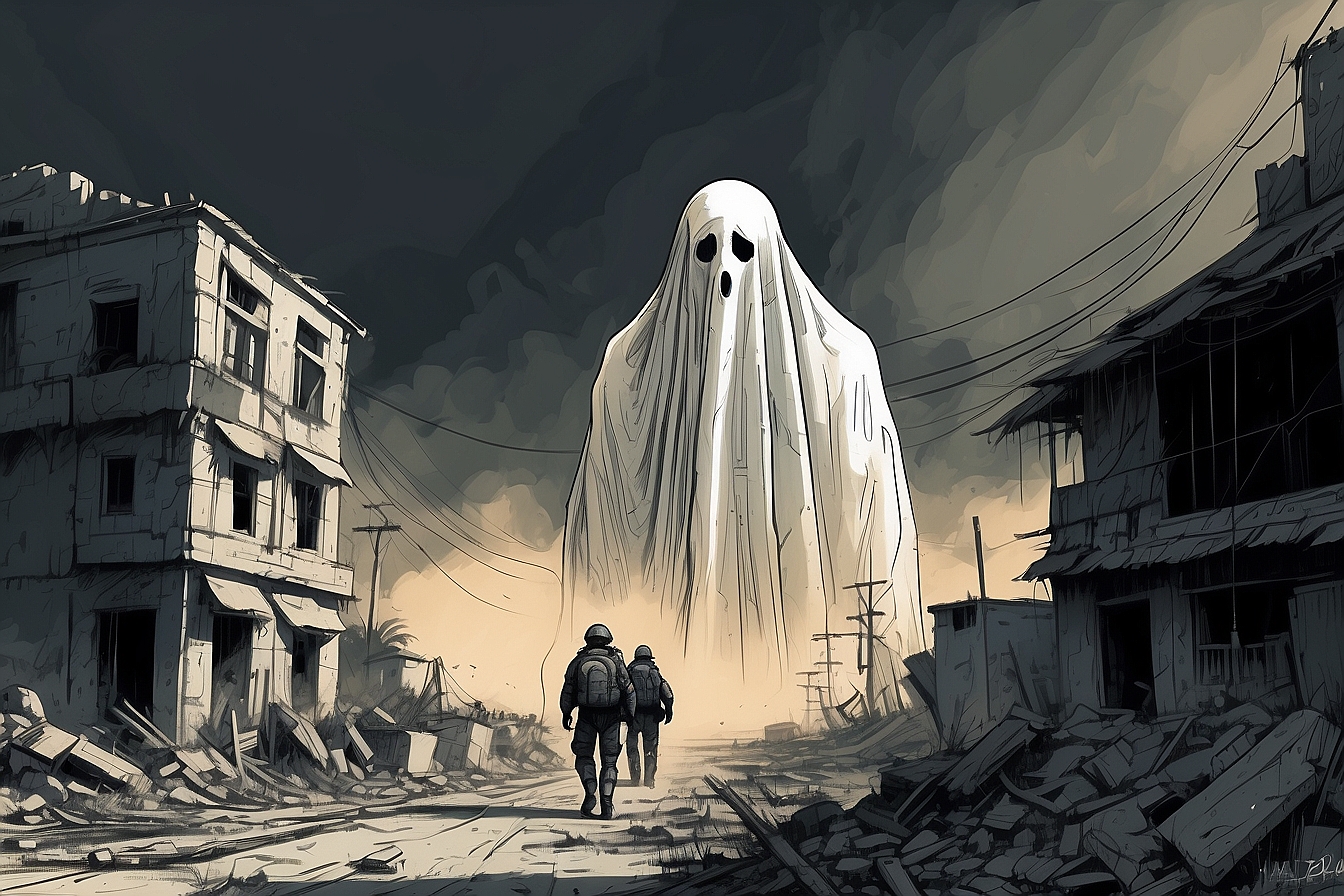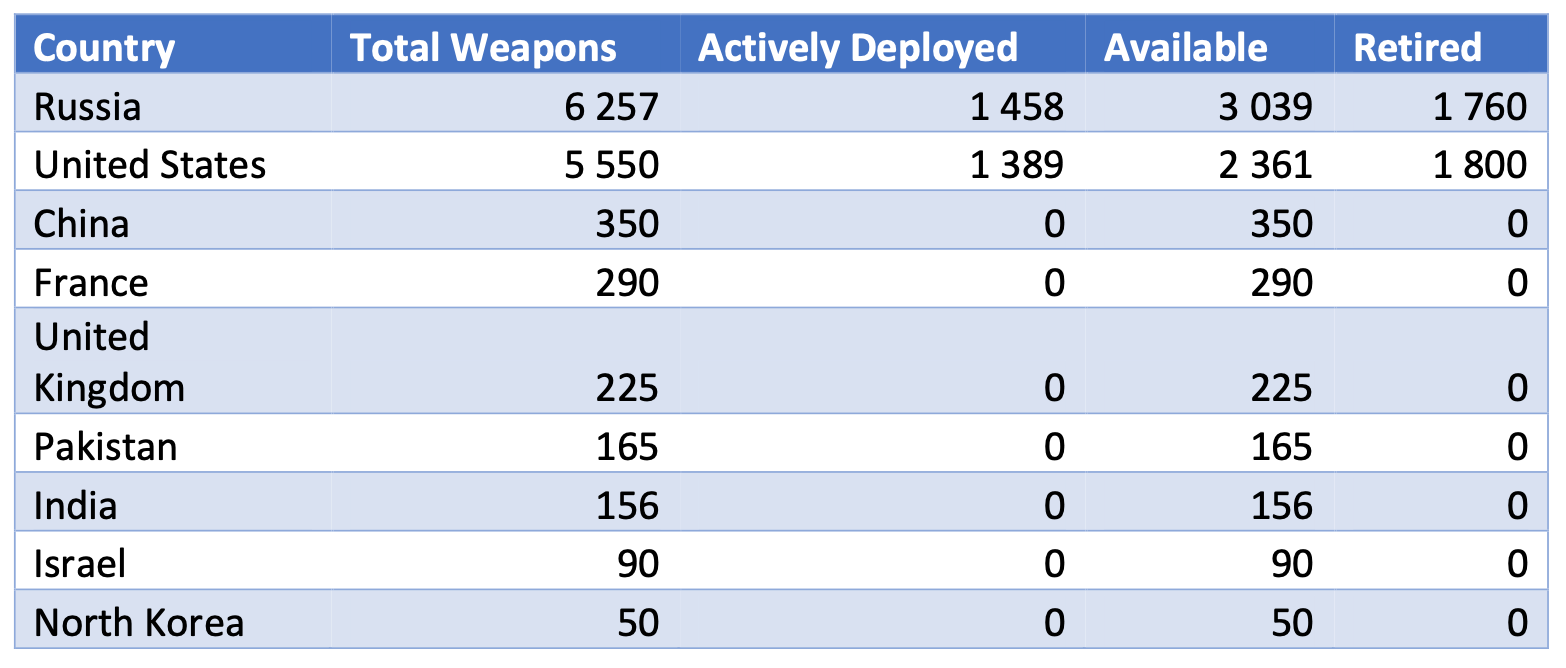The Spectre of WWIII
How to control the forgotten demon.
Vision paper written as elaboration of Francesco Grillo's column (for the Italian newspapers Il Messaggero, Il Gazzettino, and Il Mattino).

Are we ready to consider the possibility that our daughter might be called upon to protect the eastern front of the European Union on the border between Poland and Ukraine? Can we conceive the idea that our city (whether it be Warsaw, Rome, or Moscow) could be vaporized by just one of the eleven thousand nuclear devices we have locked away in an arsenal capable of disintegrating every city in the world twenty-two times over? And, above all, how can we defend what remains of a precarious peace founded on international law that obliges us to defend attacked states and people deprived of rights, without risking an apocalypse? How can we achieve this from the perspective of a version of Europe that cannot even manage to have a single border police force? This is the problem we must have the courage to confront. And it is a moral imperative - precisely in the sense that the philosopher from whom the Enlightenment originated gave to this concept - to find solutions.
We are underestimating both the possibility and the scale of total war. We underestimate the danger because we have lost the historical memory that teaches us that great wars never arise out of convenience. They arise out of error (for example by the Austrians in Sarajevo in June 1914) or out of cowardice (as demonstrated by the French and the British who allowed Hitler to invade Poland in September 1939). But we also ignore the dimension of the problem: the very idea of preparing for apocalypse by distributing iodine pills is akin to choosing to carry an open umbrella while falling from the third floor. Take a look at the figure below to see which countries are the most powerful in terms of weapons, it is a concerning picture.
TABLE 1 NUMBER AND TYPE OF NUCLEAR WEAPONS BY COUNTRY (2024)

SOURCE: VISION THINK TANK, WORLD POPULATION REVIEW DATA
There are five ideas on which it may be useful to reignite what was once called “public debate”.
Firstly, economic sanctions. They are imperfect but worth more than military sanctions. This can be attributed to the fact that it is hard to find a reasonable party who can argue that the damage from even a severe but temporary recession is lesser than the consequences of direct military confrontation, or the "sweet idleness" that slides us into the abyss. However, sanctions - as Romano Prodi, former PM of Italy, once said - must become more efficient. The battle is, in fact, technological: sophisticated triangulations (like those that allow Russia to even deliver oil to us) are countered with techniques (such as blockchain) that enable the tracking of any product and even its components. Rebuilding "global supply chains" means being able to strike, in a precise and systematic manner, not only the ruling classes that violate fundamental rights but also those who enable them.
Secondly, military spending. Here we risk reducing a crucial issue to an endless dispute between opposing lobbies. Spending at least 2% of GDP on defence can be as abstract an objective as that of the European Central Bank to keep inflation close to an arbitrarily defined target (also 2% in this case). In reality it's not just about how much we spend but also how we spend it, considering challenges that technology profoundly changes. The war in Ukraine, for example, is fought much more with small drones integrated with artificial intelligence than with expensive fighters. Equally irrational would be to acquire additional nuclear weapons where the enemy can annihilate us numerous times over. Smarter would be the idea launched precisely by Reagan, who, with Gorbachev, had the historic merit of reducing the number of warheads by two-thirds in a couple of years, to develop a space shield against possible attacks. An idea that - twenty years later - the United States is relaunching using the expertise of Space X (by Elon Musk).
Thirdly, democracy. Such difficult choices are not made unless they are shared. They say Churchill decided to confront his fellow citizens in a subway car before announcing to the world that their country would never surrender. What is certain is that our world is defended by mobilizing everyone and not making decisions from places we have failed to recognize as our own. Moreover, this also has an important fourth corollary: Europe must move quickly and therefore no longer pretend to move together: the battle to defend peace is fought with states that decide to share sovereignty; French vetoes; and arsenals; or it is not fought at all. This means conceiving a Union scheme that can no longer be the one crystallized in treaties designed for stable times.
Finally, China. It was a glaring mistake to wait for an "unbounded friendship" to solidify between two complementary superpowers. China is very close to the United States in the development of artificial intelligence; Russia is so in terms of the vastness of its nuclear arsenals and energy resources. Decreasing the chances of war also means dividing the adversary and not letting oneself be divided to remain at their mercy. The complementarity between China and Russia also means significant differences (starting from China's greater integration into the production chains of technologies necessary to abandon fossil fuels), which Europe must exploit, seeking alliances even in Asia, to prevent fronts from multiplying.
It's as if we're blindly walking towards an abyss. And, certainly, we lack the intellectual (like Bertrand Russell or Hermann Hesse) and political (up to Reagan and Gorbachev) leaderships that steered us away from other precipices. Those leaderships, however, reflected an instinct for survival that we have lost, and that humanity normally recovers when it glimpses the demon it thought it had defeated.
This article is a Vision Think Tank paper written by Francesco Grillo and Radi Damianov.

